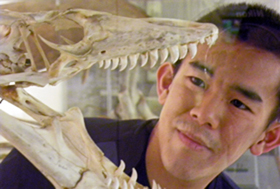“Journalists vs. bloggers”: Affirmation for B/R writers?
The “journalists vs. bloggers” debate—which can also be stated as “are bloggers journalists?”—technically doesn’t involve Bleacher Report, because B/R is not a blogging site, and thus its writers are not bloggers when they’re writing for the site.
But for obvious reasons, the issues raised in that debate have resonance around here, because Bleacher Report writers have a lot in common with bloggers. We’re outsiders, mostly amateurs, not connected with a traditional journalism outfit, usually not credentialed. Many, if not most, B/R writers have no formal journalism training when they start writing.
This debate sometimes has serious implications. Courts and Congress have wrestled with whether bloggers have the same rights as journalists. For example, do bloggers deserve protection from shield laws, which protect journalists from being forced to testify about their reporting or sources?
But, as British science writer Ed Yong writes today on his blog, Not Exactly Rocket Science, it’s a debate that’s usually pointless.
“I’ve come to realise that this debate is exactly like the film “Titanic,” he writes. “It is tedious, it goes on forever, everyone’s a caricature and they’re stuck on a massive sinking ship.”
That sinking ship, of course, is the traditional journalism industry, which includes a lot of web outfits.
Yong, who has no formal journalism training and writes for mainstream magazines, newspapers and science journals as well as blogging, says he’s not interested in the debate. He points out that “blogs are simply software. They are a channel, a medium, a container for all sorts of things including journalism.”
He’s a blogger when he blogs, and he’s not a blogger when he writes for the Guardian or Nature. But he’s doing the same thing either way: “I ask whether stories are worth telling. I interview and quote people. I write in plain English. I provide context. I fact-check … a lot.”
Here’s a longer excerpt from his blog post. He’s talking about science writing and blogs, but he could just as well be talking about sportswriting and Bleacher Report:
Now, I’m not saying that anyone who starts writing or talking is automatically a journalist—there is more to it than that. But I am saying that anyone can be. I have no training in science journalism and I never did an internship. All I have is what I call my Masters from the University of Pissing About on the Internet. I almost stumbled into this profession, and there are many others taking the same weird amateur route.
They’re not doing internships, they’re not beholden to a legacy institutions. They’re just doing their own thing. Robert Krulwich in a recent commencement speech likened this approach to sneaking into Troy. Rather than besieging the city, or waiting to be thrown a key, you build a horse. You get on with it. You write because you love it. You report because it is something that you are compelled to do. You do it in your own terms—you decide which tools you want to use, what writing style you want to use. You build a community of “horizontal loyalty” with those around you and you buoy each other up.
And I think that all of this makes it one of the most exciting times to be a science journalist. It means a more diverse array of science journalism. The new approach doesn’t replace the old (that’s a straw man) but it does complement and enhance it. I call it to the Cambrian explosion of science journalism. I actually think that most people in this field get this and are excited by it.
Attention liberal arts majors like me: Wikipedia entry for “Cambrian explosion.”
Yong’s piece reads to me like it could serve as a kind of daily affirmation for B/R writers.
-
http://twitter.com/dioselev Dmitriy Ioselevich


